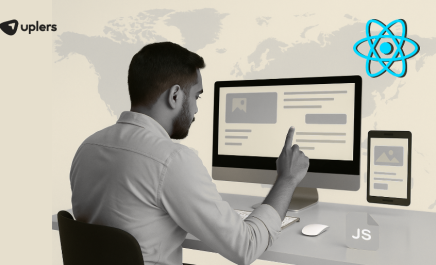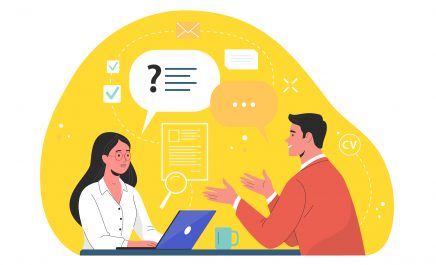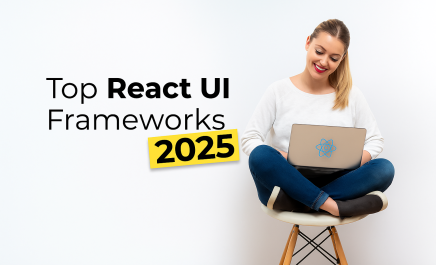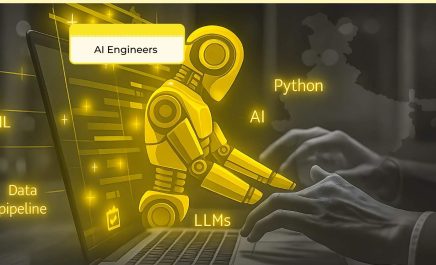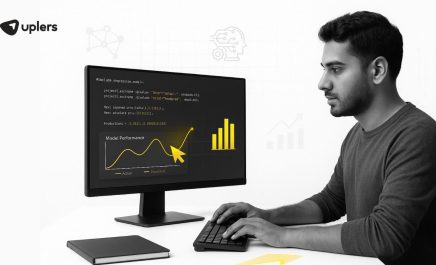How to Conduct Technical Interviews for React JS Developers
- Sathvik Poojary
- July 16, 2024
- 5 Minute Read
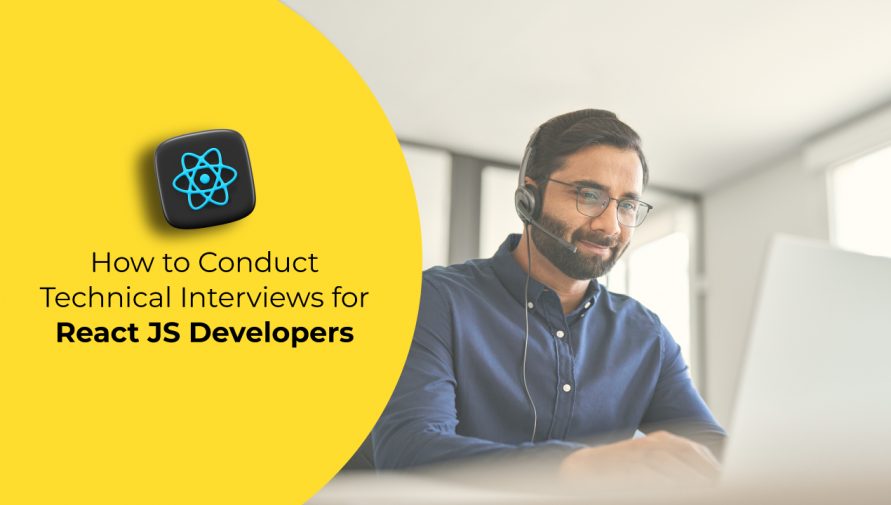
React has transformed web technology development as one of the most popular web frameworks and libraries among software developers in recent years.
While JavaScript remains the most commonly used programming language for the 11th year in a row, React is still preferred by professional developers for its declarative API, Virtual DOM, and easy UI test cases to build dynamic, structurally complex applications. However, this popularity has also made the technical talent market fiercely competitive when hiring the best React JS developers.
Skilled React JS developers are in high demand due to the growing surge of innovative and advanced web, mobile, and cloud applications. To create robust applications that stand out in a crowded marketplace and deliver value and impeccable user experiences, you need the right team with the necessary technical expertise, skills, and global mindset to harness the full capabilities of React.
This comprehensive guide will help you optimize your React developer interviews so you can identify and hire the right developers for your project.
Conducting Technical Interviews for React JS Developers
The process of hiring React JS developers should be strategically designed to identify and hire the best high-quality candidates for your project. The React JS interview process should include screening, React assessment tests, coding reviews, technical interviews, and a culture fit interview to carefully evaluate candidates’ experiences, technical knowledge, soft skills, and other qualities necessary to ensure project success.
In addition to screening rounds and assessment tests, asking the right interview questions will help candidates showcase their tech prowess and expertise, enabling you to make a great hiring choice. Technical interviews will enable the hiring team to gain further insight into a developer’s technical knowledge, communication skills, working style, and approach to problem-solving.
1. Initial Screening

Before you start your hiring process, you need to ensure that you have defined and solidified your project requirements. Once that is done, the hiring team can start the hiring process by reviewing resumes and developer portfolios. Reviewing developers’ past projects and experiences provides unique insight into the length and breadth of their technical expertise and working style.
When reviewing developer resumes and experience, consider whether the following factors align with your project and goals:
- Are their previous projects similar in nature, scale, and complexity?
- What development methodologies did they use?
- Do they have experience developing similar functions and features?
- What was their level of involvement in the development process, and does it match the current requirements needed for your organization?
After shortlisting applicants, conduct phone or video screenings to get to know the candidate, their career aspirations, prior experience, and communication skills. This step in the process is also a great time to evaluate their communication skills and whether they can communicate their ideas and experiences clearly and effectively.
Additionally, ask questions to further delve into their preferred working style, values, thought processes, passion projects, penchant for learning, and team dynamics to assess whether they would be a good culture fit for your organization.
2. Technical Assessment

React JS assessment tests are a great way to ascertain a developer’s knowledge and understanding of ReactJS principles and adjacent technologies, proficiency in JavaScript and coding, and problem-solving skills. It also helps assess whether their expertise level matches your project requirements.
To find out whether a candidate has the required skills, carefully create a strategically designed React test with practical scenarios that assess their:
- Understanding of React, its lifecycle, principles, tools, structures, and concepts
- Knowledge of React frameworks, Java algorithms, Redux, Material Kit React, React Router
- Familiarity with building reusable components
- Ability to read, analyze, and troubleshoot code
- Ability to handle events and real-world challenges in React
- Ability to manage state using Redux or hooks
- Ability to work under pressure and approach to problem-solving and ability to produce clean, efficient code
Adding practical tasks that are related to your project is a good way to understand how well the developer will be able to handle a real-world and highly related challenge.
3. In-Depth Technical Interview
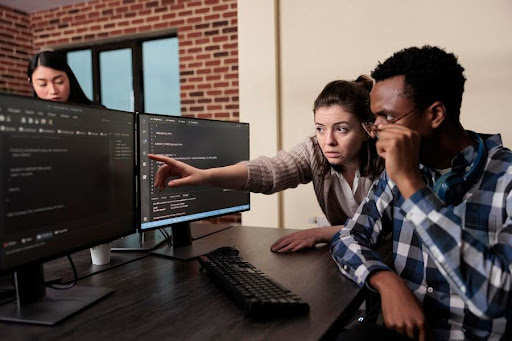
As part of the React developer hiring process, conducting an in-depth technical interview is a highly effective way to explore and deeply understand the candidate’s capabilities.
Leverage the technical interview to:
- Ask about the React assessment test, challenges faced, and their approach to solving the problem
- Discuss past projects and experiences including what they enjoyed, what they found challenging, and how they overcame setbacks
- Talk about in-depth React JS concepts, patterns, and topics related to the project
- Assess their testing, debugging, and optimization skills in React
- Discuss and assess their UX/UI design skills
- Evaluate their communication and collaboration skills, work ethic, time management skills, and cultural fit
- Gauge their ability to analyze, tackle, and solve complex problems that may pop up during the development process
- Evaluate their openness to feedback, constructive criticism, and openness to learn new ideas, methodologies, technologies, processes, and concepts
4. Final Evaluation And Decision-Making

After conducting the React assessment tests, rounds of interviews, and sufficiently asking in-depth but practical React JS developer interview questions, it is time to make the final hiring decision.
To hire React JS developers who are high-quality and well-rounded with a continuous growth mindset, pay attention to the following points:
- Consider the feedback from all interviewers, including ratings on specific skills, comments on performance, strengths and weaknesses, notes on positive or negative responses to interview questions, and actionable feedback for suggested improvements or upskilling requirements
- Review the candidate’s demonstrated skills and expertise against the project requirements to assess if there is a skill gap that can or cannot be bridged
- Assess whether the candidate’s short and long-term goals are in alignment with project requirements, workload, length, and complexity
- Appraise the candidate’s professional mindset, willingness to continuously learn and adapt to new technology, and career growth aspirations
- Analyze whether the candidate has unique perspectives, experiences, and ideas that could bring value, and diversity of thought to the team to create a more inclusive work environment
Conducting a 360-degree assessment of the candidate’s experiences and skills after the interview process will help hiring teams make a more informed decision and hire the best React JS developers for their projects.
Look beyond shiny resumes and impressive project experiences to understand whether the candidate will be a positive addition to the team, catalyze the development process, and contribute to the overall project success.
Conclusion
Technical recruiting can be a time-consuming and challenging process. Designing and conducting an in-depth hiring process for React JS developers can help identify, attract, and hire the right team for your project.
Moreover, asking the right React developer interview questions will accurately showcase a strong candidate’s technical expertise, soft skills, career growth aspirations, and approach to learning.
Baking these strategies into your React developer interview process will help optimize the hiring process, hiring success rate, and lead to greater hiring ROI.
